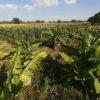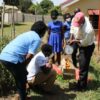A water pump that inspires a community to do more
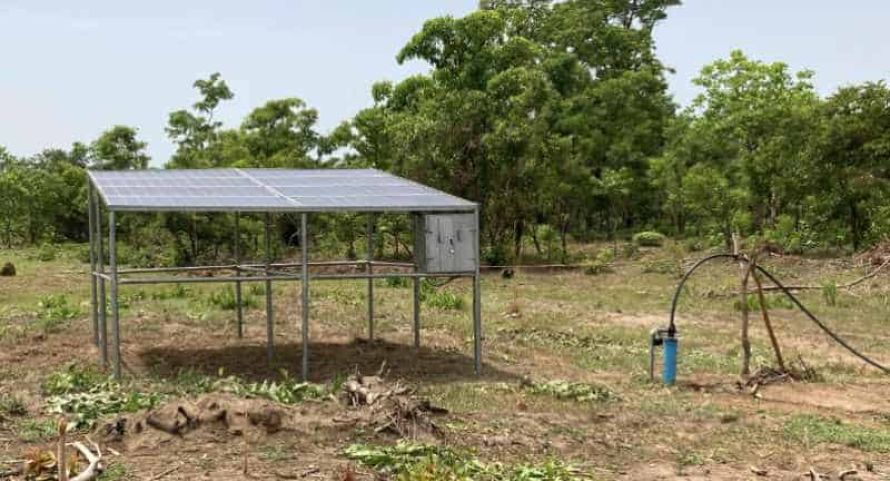
In 2021, at the Langdi Paradise Farms in Upper West Ghana, a solar mechanized water pump was installed through the support of the Green People’s Energy project of Deutsche Gesellschaft für Internationale Zusammenarbeit (GIZ). Thanks to the new irrigation, the farmers can now grow vegetables in the dry season. But for them, the new pump is just the starting point.
When Bernard Mornah drives over his farmland, he cannot go far without stopping. Every few hundred meters, he gets out of his car and walks towards one of the many huts and houses that are scattered here in the vast countryside east of Wa. Bernard greets the people in a friendly way, he inquires about their well-being, asks how some repair or the laundry is going. Mostly, he listens. After a few minutes, he is up on his way again and back in the car.
Everyone seems to know Bernard here. No wonder, after all he is the chief farmer of the Langdi Paradise Farms, which with its almost 500 hectares of farmland covers most of the land bounded here by the four hills and valleys.
Bernard employs eleven permanent and 250 casual workers on his farm. In 2021, they cleared 250 hectares of land to grow a variety of crops, like soya, maize, and cashew. But 2021 was also a special year for Bernard and the other farmers. In December, a solar mechanized water pump was finally up and running – something that the farmers had been looking forward to for a while.
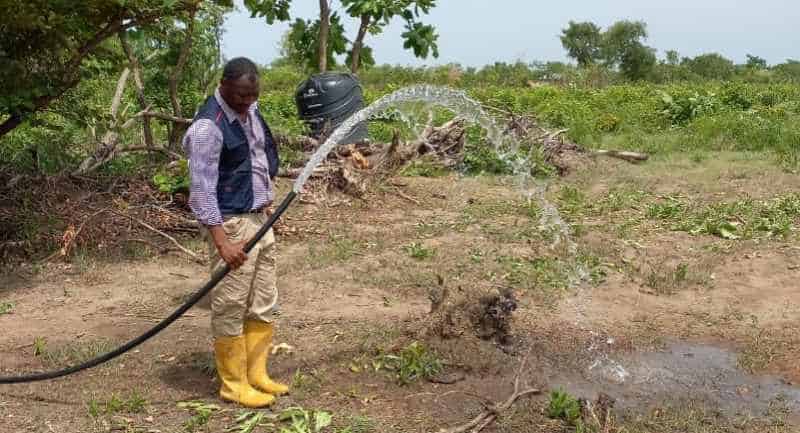
GIZ covered 40 percent of the total installation costs
Through a social media ad, Bernard had noticed the offer of the Green People Energy Project by GIZ to support the installation of solar pump irrigation systems with 40 percent of its costs. Bernard had to cover 60 percent of the installation costs, which is still substantial, but even Bernard now says: “Despite heavy initial costs, the installation was worth it.”
To see the pump, one has to drive about an hour and a half east from the small town of Wa in northern Ghana. It is the beginning of may – usually the raining season should have started by now, but the land is still dry. Climate change contributes to more unpredictable rainfalls in Ghana, already now. After a bumpy ride, in the middle of barren farmland, there it is: the water pump. It is not particularly eye-catching, only a blue pipe with a hose attached to it rises from the ground here, held by a wooden branch fork. The two solar panels standing next to it at head height are probably more noticeable.
What makes this installation so special, becomes more apparent, when the pump is switched on at the small control panel. After a few seconds and a soft gurgling sound, the water suddenly shoots out of the hose at high pressure. Bernard looks satisfied. He takes the hose and brings his mouth close to the beam. “You can drink it”, he says. “The water is from 75 metres deep.”
All year vegetable farming thanks to the pump
The pump means a great benefit for the farmers. It enables the farm to grow vegetables even in the dry season. “The absence of water has limited our ability to make the most out of the land”, Bernard says. “If you rely on natural rainfall and the season is over, basically you have nothing to do.” The economic benefit is huge not only for the farm but the entire community, Bernard explains. Many of the seasonal workers can stay employed even in the off-season and can now grow what is needed to feed the districts around the facility.
On the way back, one quickly passes a watermelon field that is irrigated with water from the pump. To grow this fruit would have been impossible here a few years ago. Many houses under construction are also passed by. Maybe, this is another benefit of the water pump project. It showed the community that with some initial investment, a lot can develop here.
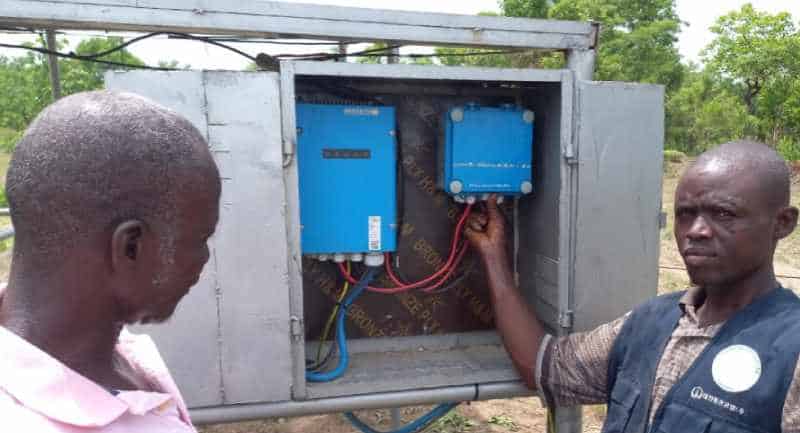
Farmer wishes to install more solar panels
Yet, chief farmer Bernard Mornah does not want to get too excited. Yes, this one pump brings a lot of improvement, he says. But more must follow. If managed well and protected from destruction, the pump can serve about ten hectares of land. Bernard has 250 hectares of cleared land – with another 150 hectares to be cleared in 2022.
Bernard points to a group of small houses. “They have no electricity there. Just to charge their phones, they must walk to the next town.” Bernard’s goal is to install more solar panels here, also to use for night-time lighting and a reliable power supply. With the pump being a good start, Bernard already has his eye on the next project.
